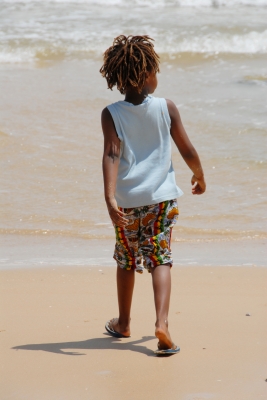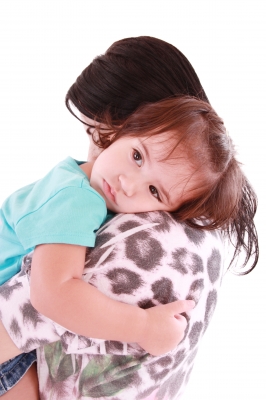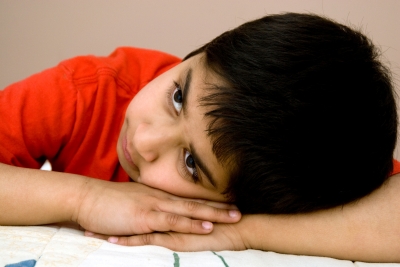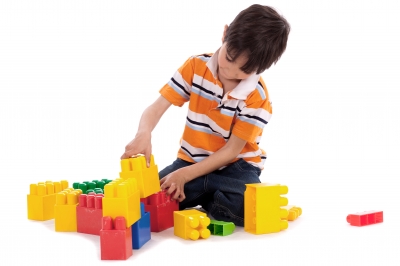 In many Western countries, the nuclear family, in which both parents are members of the household, is believed to be ideal. In Jamaica and the wider Caribbean, however, the nuclear family is often the exception rather than the rule. A large proportion of families in the region still consist of only one parent, usually the mother, with fathers adopting a marginal role in child-care and nurturance. According to the UNICEF publication “Situation Analysis of Jamaican Children,” over 45% of the households in Jamaica are female-headed. Such family structures are generally accepted as the norm in the Caribbean, and are often viewed as functional responses to the problems faced by people living in the region. Continue reading
In many Western countries, the nuclear family, in which both parents are members of the household, is believed to be ideal. In Jamaica and the wider Caribbean, however, the nuclear family is often the exception rather than the rule. A large proportion of families in the region still consist of only one parent, usually the mother, with fathers adopting a marginal role in child-care and nurturance. According to the UNICEF publication “Situation Analysis of Jamaican Children,” over 45% of the households in Jamaica are female-headed. Such family structures are generally accepted as the norm in the Caribbean, and are often viewed as functional responses to the problems faced by people living in the region. Continue reading
Author Archives: K. Coomarsingh
“Tie the Heifer, Loose the Bull”: Gender Inequality in the Caribbean
 For years, the Caribbean has been plagued with the pervasive and enduring problem of gender inequality. Gender, as a social construct, became popular during the 1960’s and 70’s and refers to “a set of qualities and behaviours expected from males and females by society” (United States Agency for International Development [USAID], 2005, p.12). While ‘sex’ refers to differences between males and females which are biologically determined and constant, ‘gender’ refers to those differences which are socially constructed and subject to change. Continue reading
For years, the Caribbean has been plagued with the pervasive and enduring problem of gender inequality. Gender, as a social construct, became popular during the 1960’s and 70’s and refers to “a set of qualities and behaviours expected from males and females by society” (United States Agency for International Development [USAID], 2005, p.12). While ‘sex’ refers to differences between males and females which are biologically determined and constant, ‘gender’ refers to those differences which are socially constructed and subject to change. Continue reading
Parenting and Depression among Children/Adolescents: A Brief Literature Review
 Various studies have recorded a significant link between depression and parenting styles characterized by low care and high control (McGinn, Cukor, & Sanderson, 2005; Mezulis, Hyde, & Abramson, 2006). Using the Parental Bonding Instrument (PBI) developed by Parker, Tupling and Brown (1979, cited in Enns, Cox & Clara, 2002) , McGinn et al. (2005) were able to separate adolescents into four categories according to the style of parenting by which they were raised. One of these categories, affectionless control, closely resembles the authoritarian parenting style in Baumrind’s classification system and is characterized by low care and high overprotection. McGinn et al. (2005) found that persons exposed to this parenting style were more depressed than persons who experienced a different style of parenting. Another group of researchers (Radziszewska, Richardson, Dent, & Flay, 1996, cited in McPherson, 2004) found that uninvolved (or neglectful) parenting was associated with the highest level of depressive symptoms among adolescents while the authoritative parenting style was significantly related to lower symptom levels. Continue reading
Various studies have recorded a significant link between depression and parenting styles characterized by low care and high control (McGinn, Cukor, & Sanderson, 2005; Mezulis, Hyde, & Abramson, 2006). Using the Parental Bonding Instrument (PBI) developed by Parker, Tupling and Brown (1979, cited in Enns, Cox & Clara, 2002) , McGinn et al. (2005) were able to separate adolescents into four categories according to the style of parenting by which they were raised. One of these categories, affectionless control, closely resembles the authoritarian parenting style in Baumrind’s classification system and is characterized by low care and high overprotection. McGinn et al. (2005) found that persons exposed to this parenting style were more depressed than persons who experienced a different style of parenting. Another group of researchers (Radziszewska, Richardson, Dent, & Flay, 1996, cited in McPherson, 2004) found that uninvolved (or neglectful) parenting was associated with the highest level of depressive symptoms among adolescents while the authoritative parenting style was significantly related to lower symptom levels. Continue reading
Posttraumatic Stress Disorder: Psychodynamic Explanations
 The link between trauma and mental illness has been known for many decades. As early as 1896, Freud hypothesized that sexual trauma resulted in hysterical illness (Chu, 1991). He later adjusted his theory to suggest that intra-psychic conflict and not the external trauma causes many illness and several aspects of this later theory have been applied to the understanding of PTSD and its main presenting symptoms. Continue reading
The link between trauma and mental illness has been known for many decades. As early as 1896, Freud hypothesized that sexual trauma resulted in hysterical illness (Chu, 1991). He later adjusted his theory to suggest that intra-psychic conflict and not the external trauma causes many illness and several aspects of this later theory have been applied to the understanding of PTSD and its main presenting symptoms. Continue reading
What is Posttraumatic Stress Disorder (PTSD)?
 Posttraumatic stress disorder (PTSD) is an anxiety disorder which develops following exposure to a terrifying event involving death, injury, or a threat to the physical integrity of onself or of another person. The symptoms characteristic of PTSD can develop out of personal experience with traumatic events or from witnessing or hearing about such events being experienced by others. Distressing events leading to this disorder include wars, natural disasters, imprisonment, violent personal assaults, serious automobile accidents, and being diagnosed with a life-threatening illness. Continue reading
Posttraumatic stress disorder (PTSD) is an anxiety disorder which develops following exposure to a terrifying event involving death, injury, or a threat to the physical integrity of onself or of another person. The symptoms characteristic of PTSD can develop out of personal experience with traumatic events or from witnessing or hearing about such events being experienced by others. Distressing events leading to this disorder include wars, natural disasters, imprisonment, violent personal assaults, serious automobile accidents, and being diagnosed with a life-threatening illness. Continue reading
Development of Social Cognition Part 2: Impact of Constructivism
Constructivism is the tradition which assumes that the reality of an event is not inherent in the stimuli which make up that event but is a result of the mind’s construction. While Gestalt psychologists spoke about perceiving reality, constructivists spoke about constructing reality, assigning the individual a more active role in making sense of events in the external world. These constructivist notions fostered the development of social cognition and continue to reverberate within the walls of that discipline even today. Continue reading


